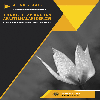SOSYAL BİLGİLER ÖĞRETMEN ADAYLARININ YAŞAM BOYU ÖĞRENME EĞİLİMLERİNİN İNCELENMESİ
Bu araştırma, Uşak Üniversitesinde öğrenim gören Sosyal Bilgiler öğretmen adaylarının yaşam boyu öğrenme eğilimlerini cinsiyet, sosyo-ekonomik düzey, yaşanılan yer, sınıf düzeyi değişkenleri bağlamında ortaya çıkarmayı amaçlamaktadır. Araştırmanın örneklemini 161 (kadın=95, erkek=66) Sosyal Bilgiler öğretmen adayı oluşturmuştur. Ölçeği geliştiren araştırmacı ölçeğin faktör analiz sonuçlarını göz önünde bulundurarak alt boyutlarını dört faktörde toplamıştır. Birinci faktör yaşam boyu öğrenmede motivasyon, ikinci faktör sebat, üçüncü faktör öğrenmeyi düzenlemede yoksunluk, dördüncü faktör ise merak yoksunluğudur. Bu çalışmada elde edilen veriler SPSS 21 istatistik programı ile analiz edilmiştir. Araştırmanın bulgularına göre; yaşam boyu öğrenme eğilimleri konusunda Sosyal Bilgiler öğretmen adaylarının güdülenme, sebat, öğrenmeyi düzenleme ve merak yoksunluğu eğilimlerinin cinsiyete göre farklılık gösterdiği, sınıf düzeylerine ve gelir düzeylerine göre anlamlı bir farklılığın olmadığı görülmüştür. Yaşanılan yere göre öğrencilerin yaşam boyu öğrenme eğilimleri değerlendirildiğinde güdülenme, sebat ve merak yoksunluğu eğilimlerinde farklılığın olmadığı, öğrenmeyi düzenleme boyutunda ise farklılığın olduğu görülmüştür.
INVESTIGATION OF LIFE-LONG LEARNING TENDENCIES OF SOCIAL STUDIES TEACHER CANDIDATES
This study aims to reveal the life long learning tendencies of Social Studies students studying at Uşak University in terms of gender, socio-economic level, place of residence, and class level variables. The sample of the study consisted of 161 (female = 95, male = 66) Social Studies students. The researcher, who developed the scale, gathered the sub-dimensions of the scale into four factors considering factor analysis results. The first factor is motivation in life-long learning, the second factor is persistence, the third factor is lack of regulation of learning, and the fourth factor is lack of curiosity. The data obtained in this study were analyzed with SPSS 21 statistical program. According to the findings of the research; in terms of life- long learning tendencies, it was seen that motivation, persistence, learning orientation and curiosity deprivation tendencies of Social Studies students differed according to gender and there was no significant difference according to class and income levels. When the life-long learning tendencies of the students were evaluated according to the place of residence, it was seen that there was no difference in motivation, persistence and curiosity deprivation tendencies and there was a difference in the dimension of organizing learning.
___
- Aksoy, M. (2013). Kavram olarak hayat boyu öğrenme ve hayat boyu öğrenmenin Avrupa Birliği serüveni. Türk Dünyası Sosyal Bilimler Dergisi, 64, 23-48.
- Aspin, D. N. &Chapman, J. D. (2000). Lifelonglearning: conceptsandconceptions. International Journal of LifelongEducation, 19(1), 2-19.
- Atam.gov.tr (ATAM). (2017). http://www.atam.gov.tr/ataturkun-soylev-ve- demecleri/muallimler-birligi kongresi üyelerine adlı siteden 17.01.2017 tarihinde alınmıştır.
- Büyüköztürk, Ş., Kılıç Çakmak, E., Akgün, Ö. E., Karadeniz, Ş. Demirel, F. (2016). Bilimsel araştırma yöntemleri. Ankara: Pegem A Yayıncılık.
- Chapman, J. D.,Janet G., Toomey, R. andAspin, D. (2005). Policy on lifelonglearning in Australia. International Journal of LifelongEducation, 24(2): 99-122.
- Diker Coşkun, Y. (2009). Üniversite öğrencilerinin yaşam boyu öğrenme eğilimlerinin bazı değişkenler açısından incelenmesi. Yayımlanmamış Doktora Tezi. Hacettepe Üniversitesi Sosyal Bilimler Enstitüsü. Ankara.
- Diker Coşkun, Y. ve Demirel, M. (2012). Üniversite öğrencilerinin yaşam boyu öğrenme eğilimleri. Hacettepe Üniversitesi Eğitim Bilimleri Dergisi, 42, 108-120.
- Evin Gencel, İ. (2013). Öğretmen adaylarının yaşam boyu öğrenme yeterliliklerine yönelik algıları. Eğitim ve Bilim Dergisi, 38(170), 237-252.
- Field, J. (2001). Lifelongeducation. International Journal of LifelongEducation, 20(1/2): 3- 15.
- Kılıç, Ç. (2014). Öğretmen adaylarının yaşam boyu öğrenmeye yönelik algıları. Eğitim ve Öğretim Araştırmaları Dergisi, 3(4), 79-87.
- Kılıç, H. (2015). İlköğretim branş öğretmenlerinin bireysel yenilikçilik düzeyleri ve yaşam boyu öğrenme eğilimleri (Denizli ili örneği). Yayımlanmamış Yüksek Lisans Tezi. Pamukkale Üniversitesi Eğitim Bilimleri Enstitüsü, Denizli.
- Koç, M., Taş, S., Özkan, H. H. & Yılmaz, E. (2009). Türkiye‟de yetişkin ve yaşam boyu eğitimine yönelik lisans programı önerisi. I. Uluslararası Türkiye Eğitim Araştırmaları Kongresi, (1-3 Mayıs 2009), Çanakkale.
- Milli Eğitim Bakanlığı Özel Öğretim Kurumları Genel Kurulu. (2008). Özel eğitim rehabilitasyon merkezi zihinsel engelli bireyler destek eğitim programı, Ankara.
- Milli Eğitim Bakanlığı (2009). Hayat boyu öğrenme stratejisi belgesi, Ankara.
- Oral, B. ve Yazar, T. (2015). Öğretmen adaylarının yaşam boyu öğrenmeye ilişkin algılarının çeşitli değişkenlere göre incelenmesi. Elektronik Sosyal Bilimler Dergisi, 14(52), 1- 11.
- Özcan, (2008). Avrupa Birliği‟nin Yaşam Boyu Öğrenme Stratejileri AB Resmi Belgelerindeki Yaşam Boyu Öğrenme Yaklaşımının İncelenmesi. Yüksek Lisans Tezi. Ankara Üniversitesi Eğitim Bilimleri Enstitüsü Halk Eğitimi Bölümü, Ankara.
- Sarıgöz, O. (2015). Meslek yüksekokulu öğrencilerinin yaşam boyu öğrenme yaklaşımına ilişkin görüş ve farkındalıklarının değerlendirilmesi. Yayımlanmamış Doktora Tezi. Yakın Doğu Üniversitesi Eğitim Bilimleri Enstitüsü. Lefkoşa.
- Sönmez, V. ve Alacapınar, F.G. (2016). Örneklendirilmiş bilimsel araştırma yöntemleri. Ankara: Anı Yayıncılık.
- Tunca, N., Alkın Şahin, S. & Aydın, Ö. (2015). Öğretmen adaylarının yaşam boyu öğrenme eğilimleri. Mersin Üniversitesi Eğitim Fakültesi Dergisi, 11(2), 432-446.
- Yıldırım, Z. (2015). Sınıf öğretmenlerinin yaşam boyu öğrenmeye yönelik yeterlilik algıları ve görüşleri. Yayımlanmamış Yüksek Lisans Tezi. Çanakkale On Sekiz Mart Üniversitesi Eğitim Bilimleri Enstitüsü. Çanakkale.
- Yılmaz, M. (2016). Öğretmenlerin yaşam boyu öğrenme eğilimlerinin incelenmesi. Mustafa Kemal Üniversitesi Sosyal Bilimler Enstitüsü Dergisi, 13(35), 253-262.
- ISSN: 2618-6004
- Yayın Aralığı: Yılda 2 Sayı
- Başlangıç: 2018
- Yayıncı: Ömer Faruk METE
Sayıdaki Diğer Makaleler
KIZILAY VE KIZILHAÇ BELGELERİYLE OSMANLILARA KARŞI İŞLENEN SAVAŞ SUÇLARI (1911-1921)
MACAR DİLİNİN EN ESKİ YAZILI BELGESİ: TIHANYI ALAPÍTÓLEVÉL (TİHANY MANASTIRI’NIN KURULUŞ BELGESİ)
ÜNLÜ MENEMENCİOĞLU AİLESİ VE TÜRK BÜROKRASİSİNDEKİ YERLERİ
XIV. VE XV. YÜZYIL OSMANLI HANEDANINDA GERÇEKLEŞEN EVLİLİKLER
SOSYAL BİLGİLER ÖĞRETMEN ADAYLARININ YAŞAM BOYU ÖĞRENME EĞİLİMLERİNİN İNCELENMESİ
